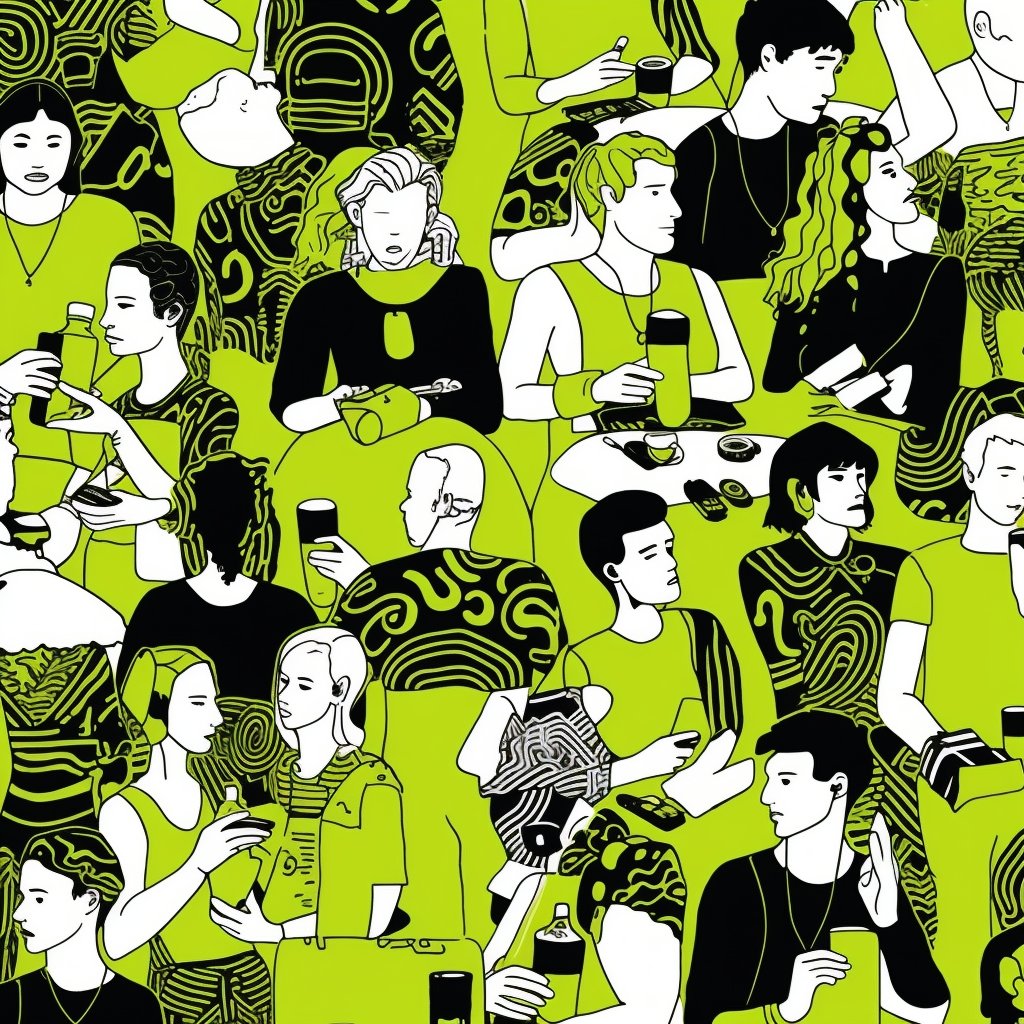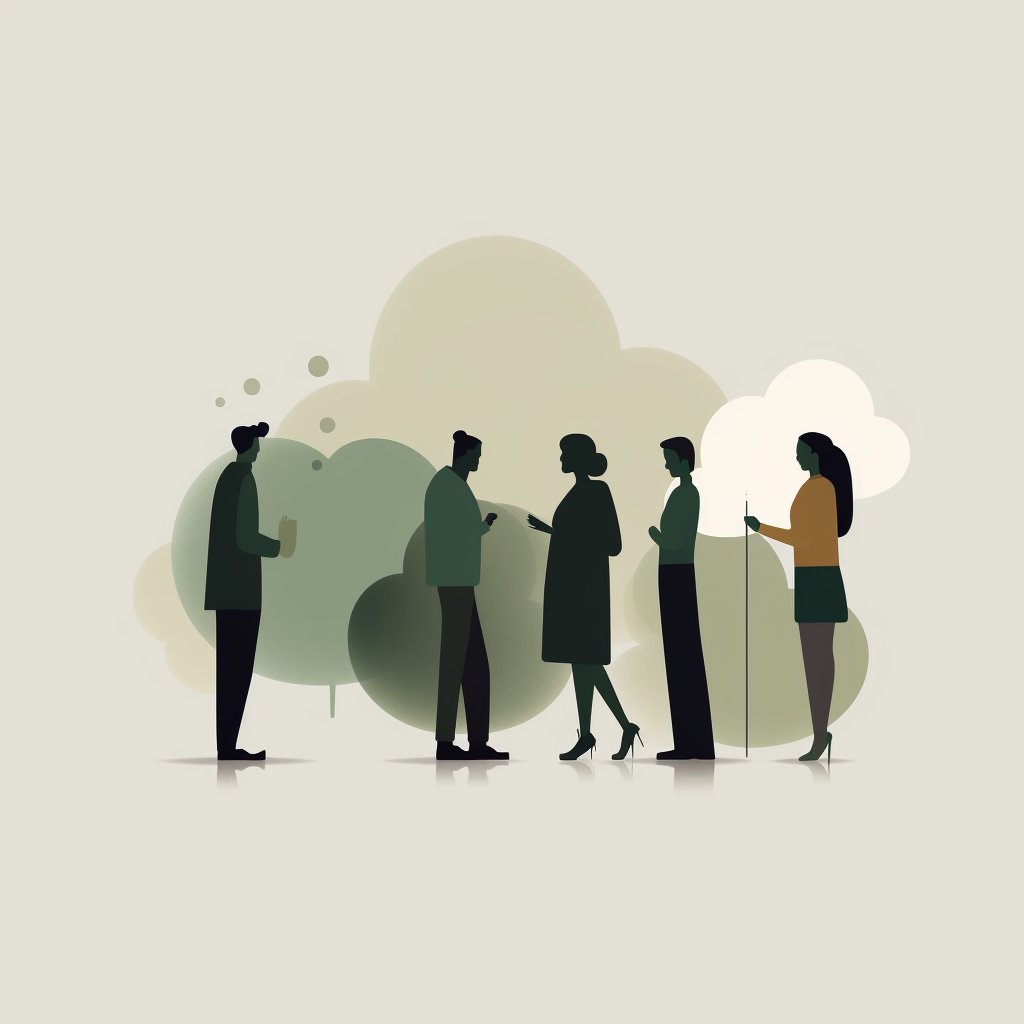ENFP Personality and Social Anxiety | ENFP Ultimate Guide

Social anxiety is a common challenge that can profoundly affect the lives of many individuals. It’s that persistent feeling of unease and fear when interacting with others, and it can be quite overwhelming.
On the other hand, the ENFP personality type, characterized by its enthusiasm, creativity, and people-centered approach, is known for its unique qualities.
In this article, we’ll explore the intriguing relationship between ENFPs and social anxiety. Can the vibrant ENFP personality be susceptible to social anxiety?
Understanding this connection is not only useful, but also vital for those who identify as ENFP and may grapple with social anxiety. Let’s dive into the world of ENFP and Social Anxiety to shed light on this often-unspoken aspect of their lives.
ENFP Personality
ENFP, short for Extraverted, Intuitive, Feeling, and Perceiving, encapsulates a personality type that’s both captivating and distinctive. Let’s unpack what makes ENFPs special.
- Extraverted: ENFPs are often outgoing and sociable, drawing energy from interactions with others. They thrive in group settings and have a natural ability to connect with people.
- Intuitive: Their intuitive nature means they see the bigger picture and possibilities beyond the surface. This trait fuels their boundless creativity and imagination.
- Feeling: ENFPs are driven by their emotions and empathy. They have a deep understanding of others’ feelings and are exceptionally compassionate.
- Perceiving: Adaptability is a hallmark of ENFPs. They’re spontaneous and open-minded, making them adaptable problem solvers.
Why ENFPs are special: ENFPs bring a unique blend of creativity, enthusiasm, and empathy to the table. Their strength lies in their ability to inspire and uplift those around them. With a natural inclination toward exploration and social connection, they often lead with their hearts, creating vibrant, inclusive spaces for themselves and others. Understanding this special personality type is key to exploring how social anxiety may affect them, a topic we’ll delve into further.
| Discover: MBTI and Anxiety | Personalities More Prone to Stress
ENFP and Social Anxiety

Social anxiety, often called social phobia, is an intense fear of social situations where individuals anticipate judgment or scrutiny by others. It can be a paralyzing condition that significantly affects daily life. Common symptoms include excessive self-consciousness, racing thoughts, trembling, and avoidance of social events.
The relationship between personality types and social anxiety is a complex one. While social anxiety can affect individuals of any personality type, certain traits may make some more susceptible. ENFPs, with their extroverted and empathetic nature, are typically outgoing and highly attuned to the emotions of those around them. However, this heightened awareness can sometimes lead to overthinking social interactions, fueling social anxiety.
ENFPs can indeed experience social anxiety, often triggered by situations where they feel their creativity, enthusiasm, or empathy might not be well-received. The fear of being misunderstood or judged can weigh heavily on them.
For instance, an ENFP might find it challenging to speak up in a meeting due to the fear of being criticized. Understanding how social anxiety interacts with their vibrant personality is crucial to finding effective coping strategies, a topic we’ll explore in this article.
Did you know that each MBTI personality reacts differently in stressful situations?
Read the comprehensive guide below to learn about each MBTI personality’s stressors, their reaction to stressful situations, tailored coping strategies for each type and more…
Factors Contributing to ENFP Social Anxiety
Environmental Factors
- High Expectations: ENFPs are often perceived as confident and outgoing, which can lead to higher expectations from themselves and others in social situations. This pressure can trigger social anxiety.
- Rejection Sensitivity: ENFPs may be more sensitive to perceived rejection or disapproval, which can be a significant source of anxiety in social settings.
- Introverted Environments: Environments that lean toward introversion or lack creativity and social interaction can be challenging for ENFPs, potentially exacerbating their anxiety.
Life Experiences
- Past Negative Interactions: Previous negative social experiences, such as rejection or criticism, can leave a lasting impact and make ENFPs more susceptible to social anxiety.
- Bullying or Teasing: Childhood experiences like bullying or teasing can affect an ENFP’s self-esteem and contribute to social anxiety in adulthood.
It’s crucial…
…to recognize that not all ENFPs will experience social anxiety in the same way or to the same degree. Just as personality types vary, so do the factors contributing to social anxiety. Each person’s experiences and triggers are unique, emphasizing the need for personalized approaches to cope with social anxiety.
Coping Strategies for ENFPs with Social Anxiety

It’s okay to ask for help, and you’re not alone in your struggle with social anxiety. Using the following coping strategies, you can work towards managing social anxiety as an ENFP, allowing your unique qualities to shine through in social interactions.
1. Mindfulness and Self-Acceptance
Embrace the power of mindfulness and self-acceptance to manage social anxiety effectively.
- Practice Mindfulness: Engage in mindfulness exercises to stay grounded in the present moment. This can help you control racing thoughts and reduce anxiety during social interactions.
- Self-Acceptance: Accept that everyone has strengths and weaknesses. Embrace your unique qualities as an ENFP, and don’t be too hard on yourself for feeling anxious in certain situations.
2. Exposure Therapy
Gradual exposure to anxiety-inducing situations can desensitize you to social anxiety triggers.
- Start Small: Begin with low-pressure social situations, and gradually work your way up to more challenging scenarios. This can build your confidence over time.
- Use Positive Reinforcement: Reward yourself for facing your fears and successfully navigating social interactions. Positive reinforcement can be a powerful motivator.
3. Seek Professional Help
Don’t hesitate to seek professional assistance if social anxiety significantly hinders your daily life.
- Therapy: Consider cognitive-behavioral therapy (CBT) or exposure therapy under the guidance of a trained therapist.
- Medication: In severe cases, medication prescribed by a mental health professional may be an option.
What you eat, defines how you live!
Read the ultimate guide below to learn about the impact of your diet on your anxiety disorder. gain valuable insights and take care of you mental health:
Nutrition and Anxiety: The Impact of Diet on Anxiety Disorder
ENFP and Social Awkwardness

Social awkwardness is a common part of human interaction, and it doesn’t have to define an ENFP’s social experiences. With self-awareness and practice, ENFPs can navigate social interactions with grace and authenticity.
What is Social Awkwardness?
Social awkwardness is a common human experience characterized by discomfort or unease in social interactions. It’s important to distinguish it from social anxiety, which is a more intense fear of judgment or scrutiny. Socially awkward moments can happen to anyone and are often minor hiccups in communication or behavior.
| Read more: Anxiety at College | Strategies to Handle Social Anxiety for Students
ENFPs and Social Awkwardness
ENFPs, with their outgoing and empathetic nature, can indeed experience social awkwardness. Their enthusiasm and creativity can sometimes lead to unconventional or spontaneous responses in social situations, which may be perceived as awkward by others.
Navigating Social Interactions
ENFPs can reduce social awkwardness by:
- Active Listening: Pay close attention to others in conversations, which can help prevent over-excitement or impulsiveness in responses.
- Self-Awareness: Recognize your tendencies and quirks, and accept them as part of your unique personality.
- Practice: Engage in social situations regularly to build confidence and adapt to different social dynamics.
Embracing Your ENFP Personality

Remember that as an ENFP, you should embrace your traits and celebrate your uniqueness. Here’s why it matters:
Celebrate Uniqueness
Your ENFP personality is a gift. Your creativity, empathy, and enthusiasm make the world a better place. Celebrate these qualities as strengths, not weaknesses.
Self-Acceptance and Self-Love
Social anxiety and awkwardness don’t define you. Practice self-acceptance and self-love. Recognize that everyone, including ENFPs, faces challenges, and imperfections are what make us human.
Resources for Growth
There’s a wealth of resources to help you grow and thrive. Consider books, online courses, and support groups focused on social anxiety, personal development, and enhancing your unique ENFP traits.
Learn a creative way to reduce your anxiety: Art Therapy for Anxiety: Drawing Ideas to Reduce Anxiety
HealWiser’s Last piece of Advice
In closing, it’s essential to remember that social anxiety and awkwardness are challenges that, with the right strategies and mindset, can be managed and overcome. The journey for ENFPs, and indeed for anyone, facing these issues is a path of self-discovery and growth.
ENFP and social anxiety need not define your interactions or limit your potential. With self-acceptance, mindfulness, and a willingness to seek help when necessary, you can not only manage these challenges but also harness your unique ENFP traits to shine brightly in social situations. Your creativity, empathy, and enthusiasm are your superpowers.
So, embrace who you are, love yourself for it, and take each step forward with the knowledge that every interaction is an opportunity to learn and grow. You’ve got this, and your uniqueness is a gift to the world.
Sharing your experiences can provide valuable insights and emotional support. So…
…share your story with HealWiser and others in the comments section below this post.





